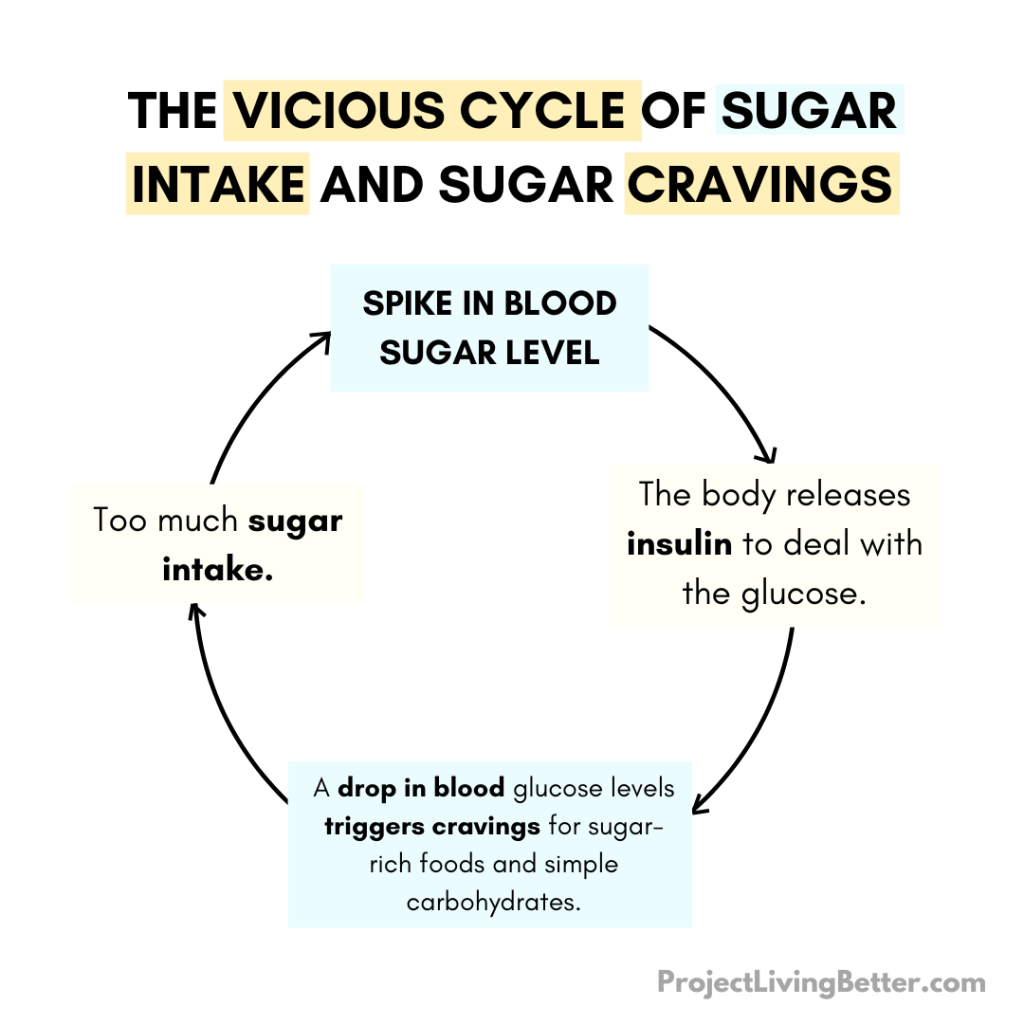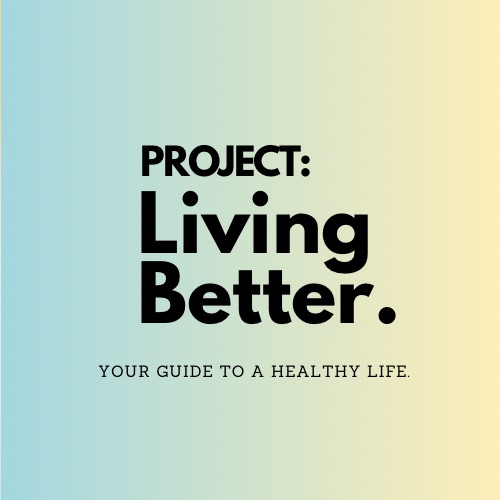The average intake of sugar has gone up significantly in recent times. We are loading our systems with too much sugar, and that’s one of the contributors to why obesity and other lifestyle illnesses are so common today.
Now, we know too much sugar is bad. But what is the recommended sugar intake per day?
How much sugar can you safely consume per day?
The recommended safe amount of refined sugar consumption per day should be less than 10% of your total calorie intake. However, the American Heart Association suggests an upper limit of 100 calories/day or 6 teaspoons (24g) for women, less than 150 calories/day or 9 teaspoons (30 g) for men, and less than 6 teaspoons (24 g) per day for 2-18 years.
Recommended Sugar Intake As Per WHO (World Health Organisation) And AHA (American Heart Association)
WHO suggests that less than 10% of your total calorie intake should come from sugars. Which means, for a 2000-calorie diet, less than 200 calories should come from refined sugar.
WHO also suggests, reducing your sugar intake to 5% of your total calorie intake would yield even more benefits. 5% of total calories would roughly mean 25 gms of sugar or 6 teaspoons of sugar per day.
AHA also recommends being more aggressive considering the fact that just like salt, it is very easy to overdo the sugar, as the consumption of sugary foods and drinks are at an all time high today.
AHA recommendations (as mentioned above) are as follows:
- Less than 100 calories/day or 6 teaspoons (24g) for women,
- less than 150 calories/day or 9 teaspoons (30 g) for men, and
- less than 6 teaspoons (24 g) per day for 2-18 years.
- AHA also recommends an 8-ounce per week limit of sugary beverages for kids.
Why Should You Consider Controlling Your Sugar Intake?
Too much sugar is bad for health; this is not a hidden fact.
Some of the major health issues that are linked with too much sugar consumption are obesity, increased risk of type 2 diabetes, hypertension, heart diseases, non-alcoholic fatty liver, and certain cancers. Additionally, too much simple sugar also promotes tooth caries.
It is important to remember that refined sugar does not provide any nutritional value to our bodies. They only provide taste, and when taken in excess, provide extra calories, which get stored in our body as extra pounds.
Excessive Sugar Intake Leads To Increased Sugar Cravings
Most processed foods are very high in either sugar (or simple carbohydrates, which eventually are broken down into sugar in the body) and cause a sudden spike in blood sugar levels.
This elevated level of circulating blood sugar levels triggers the release of a higher amount of insulin, which brings down the sugar levels.
However, this drop causes a drop in blood sugar level and therefore triggers sugar cravings, because your body needs a certain amount of blood glucose level at all times for optimum functioning.
But chances are that once you get the sugar cravings as a result, you will again overdo sugar consumption, and the whole cycle will repeat itself.

Sugar Addiction: Is Sugar Really Addictive?
The dopamine release following the consumption of sugar also makes it a little “addictive” in some sense.
Of course “sugar addiction” can’t completely be compared with drug addiction, but sugar does stimulate the same dopamine-reward system that makes the consumer get hooked.
Frequent consumption of refined sugar eventually blunts the reward system, creating a certain degree of “tolerance”.
This leads to the consumption of a higher amount of sugars to produce the same intensity of “dopamine hit”, that earlier was experienced at lower doses.
That’s why overeating sugary food and drinks is very easy, and quitting sugar can be a little challenging. Although, it’s way easier to quit this addiction.
By sugar, we don’t mean the natural sources of sweets like fruits. Sugar here refers to refined sugar/added sugar.
1 teaspoon = 4 gm of sugar.
You can use this reference while reading the labels.
Whole Fruit Vs Fruit Juices: Are Fruit Juices Healthier Options Than Other Sweetened Drinks?
Unfortunately, not necessarily. There are multiple reasons for it.
Processed fruit juices.
The problem with readily available, packed fruit juices is again the same— they contain a lot of added sugar in them.
If not added sugar, they may contain artificial sweeteners. This may be okay for occasional consumption, but we now know that long-term regular consumption of artificial sweeteners has its own set of side effects.
Fruit juices prepared at home.
Even if you prepare juices at home, they would contain a lot of free sugar naturally (i.e. without you adding any sugar to them).
Fruit juices contain a lot more free sugar in them because, in natural forms like fruits, vegetables and milk, sugar occurs naturally– in addition to fibers and other healthy nutrients. But while juicing, the fiber part of the fruit is removed, and the naturally occurring sugar is readily available for the absorption. This will cause a spike in blood sugar levels– even though they are natural sugar.
Whole fruit.
A whole fruit will never cause such a spike in blood sugar, because you eat the fruit with the fiber. Our body takes time to digest this fiber and therefore the release of sugar present in the structure happens very slowly; preventing sudden spikes in blood glucose levels.
So, the bottom line is that whole fruit is always a better option when compared to fruit juices and concentrates in many ways. Whole fruits are also more filling when compared to fruit juices and concentrates, and therefore a better choice to curb hunger and stay full for a longer time.
This doesn’t mean that you can’t or shouldn’t drink fruit juices; only that a little caution is needed and a large amount of consumption at once should be avoided.
How To Cut Down Refined Or Free Sugar From Diet?
Your aim need not be completely quitting sugar or simple carbohydrates. In fact, that could be bad for your health.
Simple carbohydrates are the most readily available form of energy. Our body, therefore, prefers them as an immediate source of energy. Without simple carbs, you will always feel tired and low-energy.
Therefore, your goal should be to limit them, not necessarily quit carbs. You can choose to quit refined sugar— especially if you are advised to do so by your doctor for any health issues/conditions.
But as long as you stay within the above-mentioned limits for refined sugar, have an active lifestyle, overall good eating habits, sleep well and stress less, you’ll be able to create and maintain a healthy body.
Now, some of the ways you can control your refined sugar intake are as follows:
1. Check the ingredient list always.
Free sugar can be present in a product with different names. The next section enlists some of the common names of free sugar that are commonly found in processed and packed foods and drinks.
The next thing you should look out for is the amount of sugar present in a product.
Depending on how much sugar is present in a product, it can be classified as high or low in sugar.
- High in sugar products= more than equal to 22.5 g of total sugar per 100 g (or more than equal to 20% of daily value)
- Low in sugar products= Less than and equal to 5 gm of total sugar per 100 g (or less than or equal to 5% of daily value)
- Medium in sugar products = Between 5 to 22.5 g of total sugar per 100 g.
Another way to know if the product contains a lot of sugar or not is to check where the sugar is listed on the ingredient list. The higher the sugar in the ingredients list, the higher the amount of sugar present in it.
When you pick up a product either go for a product with no added sugar or a product low in sugar.
2. Avoid drinking too many sugary drinks and foods.
Sugar-rich drinks are actually the leading cause of excess sugar intake. Controlling sugar-rich foods should also be considered.
Too much sugar mostly comes from chocolates, desserts, candies etc. Not that you can’t have them. You just need to be aware of how much of these sugary foods and drinks are going into your body.
It’s not that you can’t consume sugar, it’s the “too much” sugar at a time or in a day that you need to be aware of.
3. Tea and coffee.
If made at home, are not that big of a sugar source, unless you are drinking a large amount of these drinks with a lot of sugar in them. But for most people this is not the case.
2 to 3 cups of coffee or tea with 1 or 2 teaspoons of sugar is not going to add too much sugar to your system. With this much sugar, you can still stay within the recommended salt intake limits.
However, if you drink more, you may consider using artificial sweeteners or going totally sugar-free for a few cups.
Coffee and tea bought from a store may contain a lot of added sugar. It’s better to prepare your own tea or coffee.
4. Reduce the intake slowly.
If your consumption of sugar is too high and you’d like to reduce your intake, reduce it in a stepwise manner.
Start by making a small reduction. Your taste buds will soon adjust to that (in a few days). And then, you can make another small reduction, and continue to do so till you bring it down to healthy levels.
The Different Names Of Added Sugar In The Ingredient’s Label
Added sugar is not always labeled as “added sugars” or “refined sugars”. They may be present in a product under different names. While their source and names may differ, the effect they have on blood sugar levels is the same.
Added sugars can be present in a product with the following names:
| Cane sugar | Corn syrup | Nectars |
| Honey | Fructose | Maple syrup |
| Brown sugar | Sucrose | Agave syrup/ Agave |
| Fruit juice concentrates and purées | Glucose | Dextrose |
| Fructose/ high fructose corn syrup | Crystalline sucrose | Maltose |
| Molasses | Treacle | Invert sugar |
| Raw sugar | Malt syrup | Evaporated cane juice |
| Cane crystals | Crystalline fructose | Added sugar |
Recommended Sugar Intake: What To Remember About Controlling Sugar Intake?
Refined sugar does not add to nutrition. They only add to calories. But Y\you don’t need to completely quit sugar. However, if your eating habits, in general, are not good and you lead a very inactive life, keeping the sugar intake in check would be ideal, as that will help you prevent many health issues.
In general, keeping your sugar intake less than 10% of the total calorie intake per day is the recommended safe upper limit. If you are at a higher risk of developing conditions like diabetes, hypertension, etc, you should consider opting for the more aggressive recommendations from the AHA.
Even if you consume too much sugar today, once you start reducing the amount of sugar your taste buds will adjust to it.
Remember that as long as you keep everything in moderation, you’re good.
Reference
- School of Public Health, Harvard T.H.Chan. Added Sugar. Retrieved from https://www.hsph.harvard.edu/nutritionsource/carbohydrates/added-sugar-in-the-diet/
- Harvard Health Publishing, Harvard Medical School. The Sweet Danger of Sugar. Retrieved from https://www.health.harvard.edu/heart-health/the-sweet-danger-of-sugar
- James M. Rippe and Theodore J. Angelopoulos (2016). Relationship between Added Sugars Consumption and Chronic Disease Risk Factors: Current Understanding. Retrieved from https://www.ncbi.nlm.nih.gov/pmc/articles/PMC5133084/

—Featured image credits: Suzy Hazelwood on Pexels.com


Leave a comment